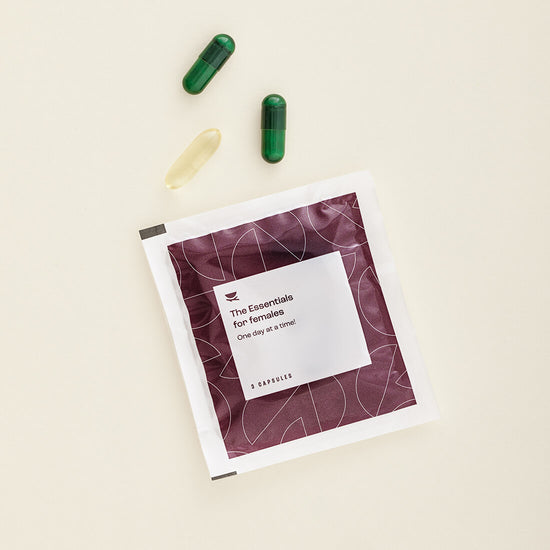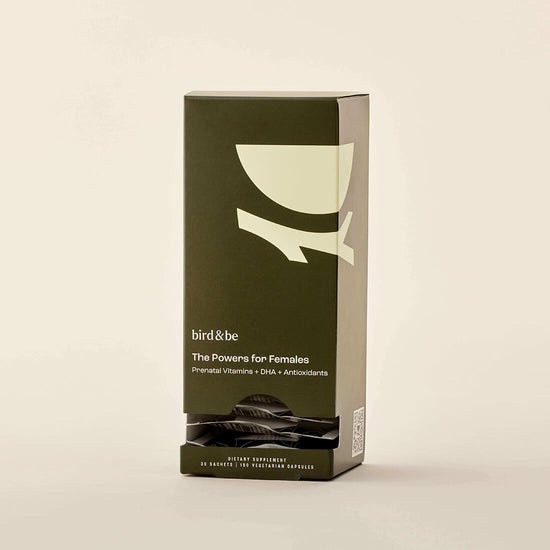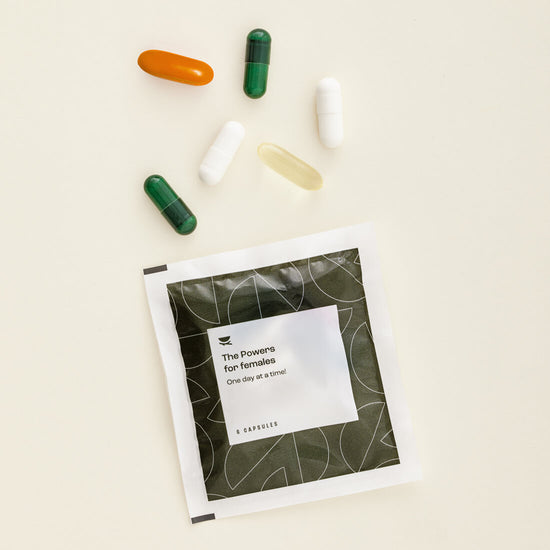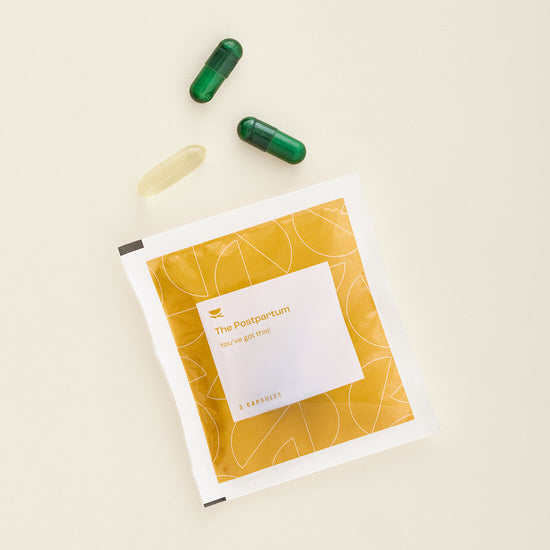Vitamin A is an essential antioxidant vitamin which helps maintain eye health and function. Being deficient in this fat-soluble nutrient is actually the main cause of preventable blindness worldwide. Even though Vitamin A is needed for the normal development of an embryo and the fetus (helping with bone development, immune function, and ocular health), there have been several reports of Vitamin A toxicity in pregnancy. So how much Vitamin A do you need in pregnancy and how much is too much?
Retinal, retinol and retinoid acid: What form of Vitamin A should I take?
In humans, there are three active forms of Vitamin A: retinal, retinol, and retinoid acid. Vitamin A can also be stored in the liver as retinyl ester. Your body can’t make Vitamin A on its own so, instead, we rely on getting it from our diet, either in preformed Vitamin A (retinol and retinyl ester found in animal products like milk, cheese, yogurt and cod liver oil) or from beta-carotene (found in fruits and vegetables like carrots, pumpkin, spinach, and sweet potato).
Your body takes Vitamin A and turns it into the active (but very unstable) retinoic acid form. When it gets broken down into metabolites like trans-retinoic and 13-cis-retinoic acid, these forms directly affect the activity of the embryo and fetal genes during the critical early weeks of development. High amounts of these forms of Vitamin A are said to be “teratogenic” since they can cause embryo and fetal malformations and birth defects.
Both low and high amounts of Vitamin A in pregnancy can be problematic
Do you need Vitamin A when pregnant?
Having a Vitamin A deficiency in pregnancy can restrict fetal growth and negatively affect blood sugar and insulin balance later in life. Some reports even link it to the development of type 2 diabetes. Meanwhile in animal studies, Vitamin A deficiency has led to birth defects such as cleft face or palate, small or absent eye, abnormal urinary systems, malformations of forelimbs, and abnormal development of the heart and arteries. Yes, Vitamin A is a necessary vitamin all the time, even in pregnancy.
How much Vitamin A is too much during pregnancy?
As much as we need Vitamin A during pregnancy, multiple studies have found that too much Vitamin A can be toxic, and cause developmental malformations, especially when in the form retinoic acid and 13-cis-retinoic acid. It’s for this same reason that the well-known acne medication isotretinoin, which contains 13-cis-retinoic acid, is teratogenic and cannot be used during pregnancy. These specific Vitamin A metabolites can control gene expression in the embryo and fetus and therefore affect development. Some reports have found associations between high supplementation and malformations of the cardiac and central nervous systems, in addition to pregnancy loss. Because this greatly affects early development, the risk of teratogenicity is greatest during the first 60 days of pregnancy.
How much Vitamin A should you take when pregnant?
The RDA for pregnancy is 770 mcg RAE per day, and 1330 mcg RAE for lactation. The World Health Organization (WHO) recommends 800 mcg daily in those that are susceptible to Vitamin A deficiency and night blindness and also advises against taking more than 3000 mcg daily. In developed countries with a low risk of Vitamin A deficiency, the UK National Institute for Health and Clinical Excellence (NICE) recommends avoiding supplements with more than 1500 mcg daily. Since liver is a rich dietary source of Vitamin A, you should also avoid consuming liver during pregnancy.
Bird&Be Prenatal Essentials and Power Prenatal for Females and Males each have 540 mcg in our daily sachets which is well below the recommended intake, but still meeting the body’s needs.
Can I use retinol and Vitamin-A-containing skincare products during pregnancy?
When you apply a retinol or tretinoin cream to your face, you do absorb some of that into your circulation, however the amount is relatively minuscule compared to the amounts found in oral Vitamin A supplements. In a 1998 report from Motherrisk, a Toronto-based medical team out of Sick Kids Hospital, mothers who had used a tretinoin facial product during pregnancy were not found to have significantly different rates of miscarriage, live births, or birth defects compared to those who were not exposed to topical Vitamin A products.
In a 2016 review, the authors, having looked at three prospective cohort studies also concluded that these topical Vitamin A products are unlikely to affect embryo development. Even though this may be the case, it is still advised that you avoid retinoid-containing topicals during pregnancy—just to be on the safe side—as advised by a group of researchers who looked at formulas that use newer generations of retinoids.
Is Vitamin A safe when trying to conceive?
Your body needs Vitamin A for the function of multiple organ systems, and for normal embryo development. In addition, some people have variants of genes that affect the ability to convert dietary beta-carotene into active Vitamin A forms. In these cases, it may be necessary to ensure adequate daily preformed Vitamin A either through dietary sources or supplementation, but to ensure safety, avoid blowing past the WHO’s recommended doses, and keep intake under 3000 mcg daily.
Is Vitamin A safe postpartum or while breastfeeding?
As a fat-soluble vitamin, maternal Vitamin A easily transfers into breastmilk. Newborns up to six months old need approximately 180 mcg of Vitamin A per day, with safe intakes reported at 350 mcg daily. Which is easily achieved if you have a supplement or diet that covers the recommended daily intake. (Our Postpartum supplement has 540 mcg, helping to ensure you get the Vitamin A you and baby need.)
Vitamin A is an essential nutrient, but it’s not hard to reach toxic levels with high-dose supplements. For fetal safety, intake of supplemental Vitamin A should stay under 3000 mcg daily, unless you’ve been diagnosed with a Vitamin A deficiency and have been medically prescribed preformed Vitamin A.









